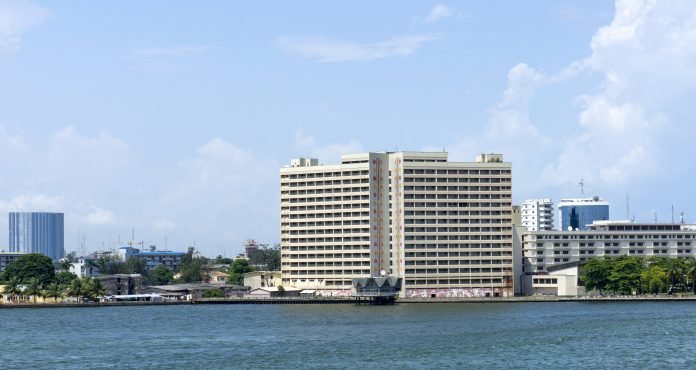Imagine Secretary Clinton as an ordained Priestess. Well, not currently in history, but while she was still in office as a US Senator. Would people have protested of a supposedly divine call that can potentially interact with her role in the Senate? Either you are reasoning from an eye of conflict of interest, or from the understanding of a US sacred norm around separation of state and religion, it is certain that some clear lines could get blurred.
Such is the case with a former first lady, and a current Senator of the most populous State in Nigeria, Lagos, Senator Oluremi Tinubu. Tinubu was just recently ordained as an Assistant Pastor of arguably the most populous religious congregation in the world, the Redeemed Christian Church of God. It was reported that in Lagos alone, over 50,000 people worship in the church weekly. If the game of politics is still a game of number, Tinubu is surely on the roll. Her party holds the majority in the Senate, her husband, who is a known Muslim, and currently the National Leader of the All Progressive Congress (APC), ruled Lagos State between 1999 and 2007. She went on becoming a Senator in 2011, and now she’s got her foot too on the pulpit. With a gavel on one hand, making Lagos laws, bible on the other, affirming the Ten Commandments, and a rosary possibly on her neck, declaring the beauty of both, any election is a homerun.

There is more though to this wonder woman. First of all, staying married, as a devout Christian to a Muslim husband it’s tough and only powerful women like her can pull this off. Second, if you aren’t ready to participate in taking home bags of cash and favors (call it bonus, or as familiar to Nigerians, egunje, or something that could subject you to a criminal investigation here in the US) monthly, it’s hard to stay alive in Nigerian politics. So how Tinubu, a purported devout Christian, manages to constantly turn down offers along with their holy temptations, and still duck off animosities that come with that, is in of itself a kind of power that worth recognition, should this be the case.
Wondering how she might be able to juggle constituents meetings with the preparation of sermon for a bright Sunday morning? She can do both, and still many more. In Nigeria, elected officials hardly meet with constituents or host town hall meetings. They are seen in their motorcades with a siren blowing these cacophonic sounds to announce they are driving by. Their SUVs blow a siren as would an ambulance on the street of Manhattan in New York City. When “constituents” watch the SUVs drive by, they are reminded of how unimportant they are which further urges them to keep their dreams alive. Tinubu might attend some hearings on important lawsuits against or for interest groups here and there. She might stop by a market leader in Idumota for a chat, and attend important meetings relating to oil revenues and the like. As for the sermon, she’s ordained an Assistant Pastor; preaching roles will be a fill-in, or in this case of a celebrity status, as she prefers. It’s a solid merger proposition; clean with no any antitrust palaver. It’s simply serving people and serving God with apparent beneficiaries being Pastor Enoch Adeboye, the Tinubus, the people of Lagos State, and God. Everybody wins, and God also.
In Tinubu’s defense, people were citing scriptures and warning against judging her. Some had also fired back asserting that judging is in line when you reach for public office. Irrespective of anyone’s views, Senator Oluremi Tinubu who since May 2011 holds the mandate of the people of Lagos Central Senatorial District, now has additional mandate, as conferred by the power invested in the General Overseer of the Redeemed Christian Church of God, to intercede on behalf of her people in spiritual matters.
Do you feel it’s okay to hold both offices at the same time?
Send your comment below.
USAIG is a media organization that focuses on African immigrants in the United States. We offer community content and promote African identity. We support personal and professional development of Africans and immigrant community in the US. We consult on cultural based training focusing on inter-generational relationships between African youths, parents and community, and we facilitate diversity and inclusion training workshops.



